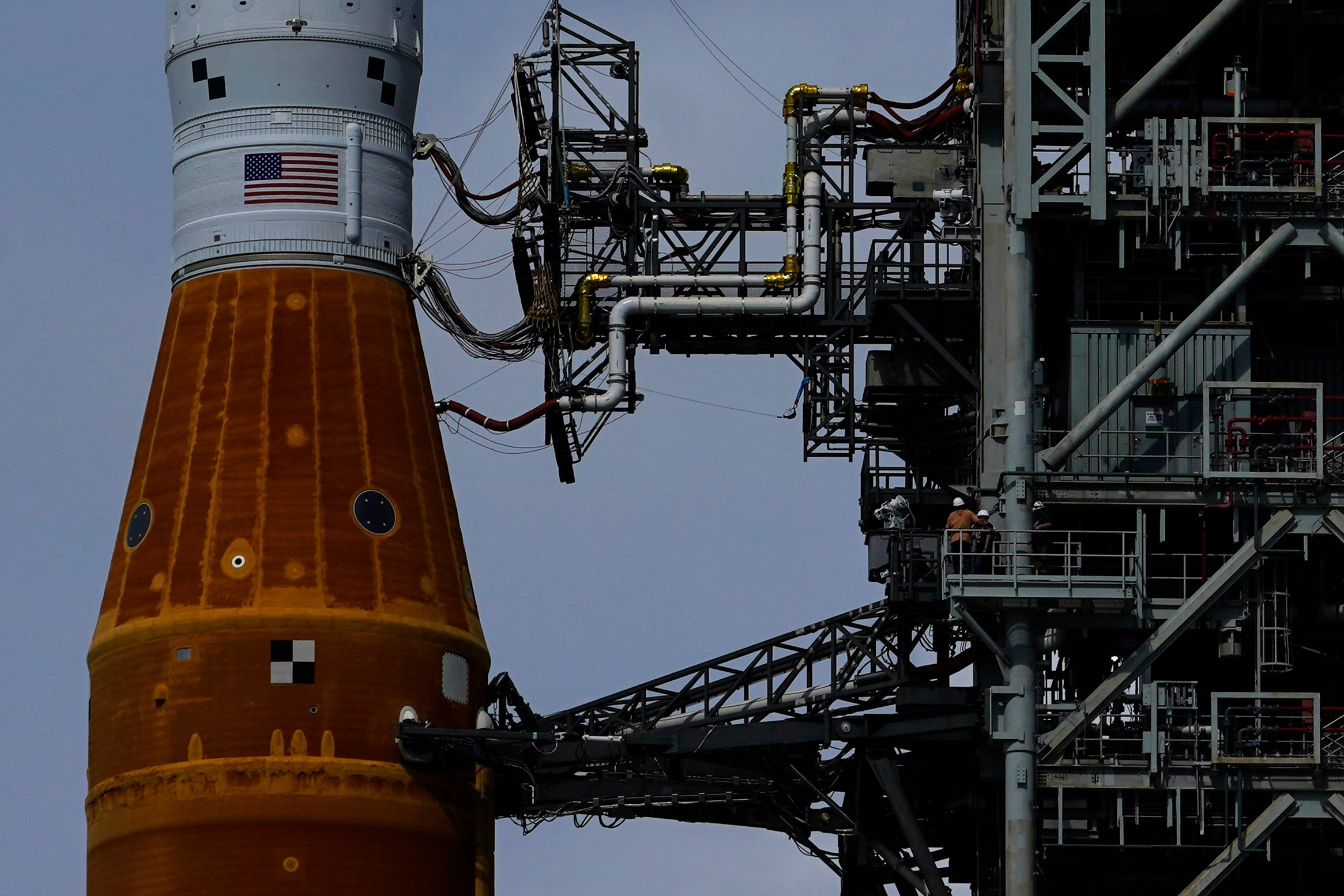Crucial test for Nasa’s big Moon rocket scheduled for Wednesday morning
Nasa prepares to test its fixes for problems that grounded its big Moon rocket

Your support helps us to tell the story
From reproductive rights to climate change to Big Tech, The Independent is on the ground when the story is developing. Whether it's investigating the financials of Elon Musk's pro-Trump PAC or producing our latest documentary, 'The A Word', which shines a light on the American women fighting for reproductive rights, we know how important it is to parse out the facts from the messaging.
At such a critical moment in US history, we need reporters on the ground. Your donation allows us to keep sending journalists to speak to both sides of the story.
The Independent is trusted by Americans across the entire political spectrum. And unlike many other quality news outlets, we choose not to lock Americans out of our reporting and analysis with paywalls. We believe quality journalism should be available to everyone, paid for by those who can afford it.
Your support makes all the difference.Nasa will reach the next milepost on the long march to get its Artemis I Moon mission off the ground on Wednesday morning, as the space agency attempts another fueling test of its Space Launch System (SLS) rocket.
The fueling test is scheduled to begin around 7am eastern time on Wednesday morning and should be complete by around 3pm, if all goes according to plan. Live coverage on commentary of the test will be carried on Nasa TV beginning around 7.15am.
The fueling test is designed to assess whether Nasa’s fixes for liquid hydrogen fuel leaks that led to the cancellation of a 3 September launch attempt will hold.
Nasa first tried to launch Artemis I, which consists of the SLS rocket and Orion spacecraft, on 29 August, but weather concerns, a faulty valve and problems bringing one of the rocket’s engines to the proper preflight temperature led the space agency to scrub the launch.
In September, Nasa couldn’t stop leaks in the interface between the liquid hydrogen fuel line and the SLS rocket’s fuel tank, leading to a scrubbed launch.
Nasa has since replaced seals on the interface and changed its cryogenic fuel loading procedures, and Wednesday’s test is intended to see if those changes will be sufficient to fix the leaks prior to the next launch attempt. Nasa will load the SLS core and upper stage fuel tanks during the test, but will keep the rocket powered down.
If all goes well, Nasa hopes to try for a launch on 27 September, with a back up date of 2 October.
Artemis I is the first mission of the Artemis Moon campaign, and is the first uncrewed test flight of SLS and Orion under conditions similar to what human astronauts will experience when traveling to the Moon. SLS will launch Orion on a more than month-long mission to fly around the Moon, testing out the spacecraft’s flight systems, before returning to Earth and splashing down in the Pacific ocean.
If Artemis I is a success, Artemis II will follow in 2024, where four Nasa astronauts will fly a similar flight path around the Moon and back to Earth. Artemis III, scheduled for 2025, will see two astronauts finally set foot on the Moon again for the first time since 1972.
Join our commenting forum
Join thought-provoking conversations, follow other Independent readers and see their replies
Comments